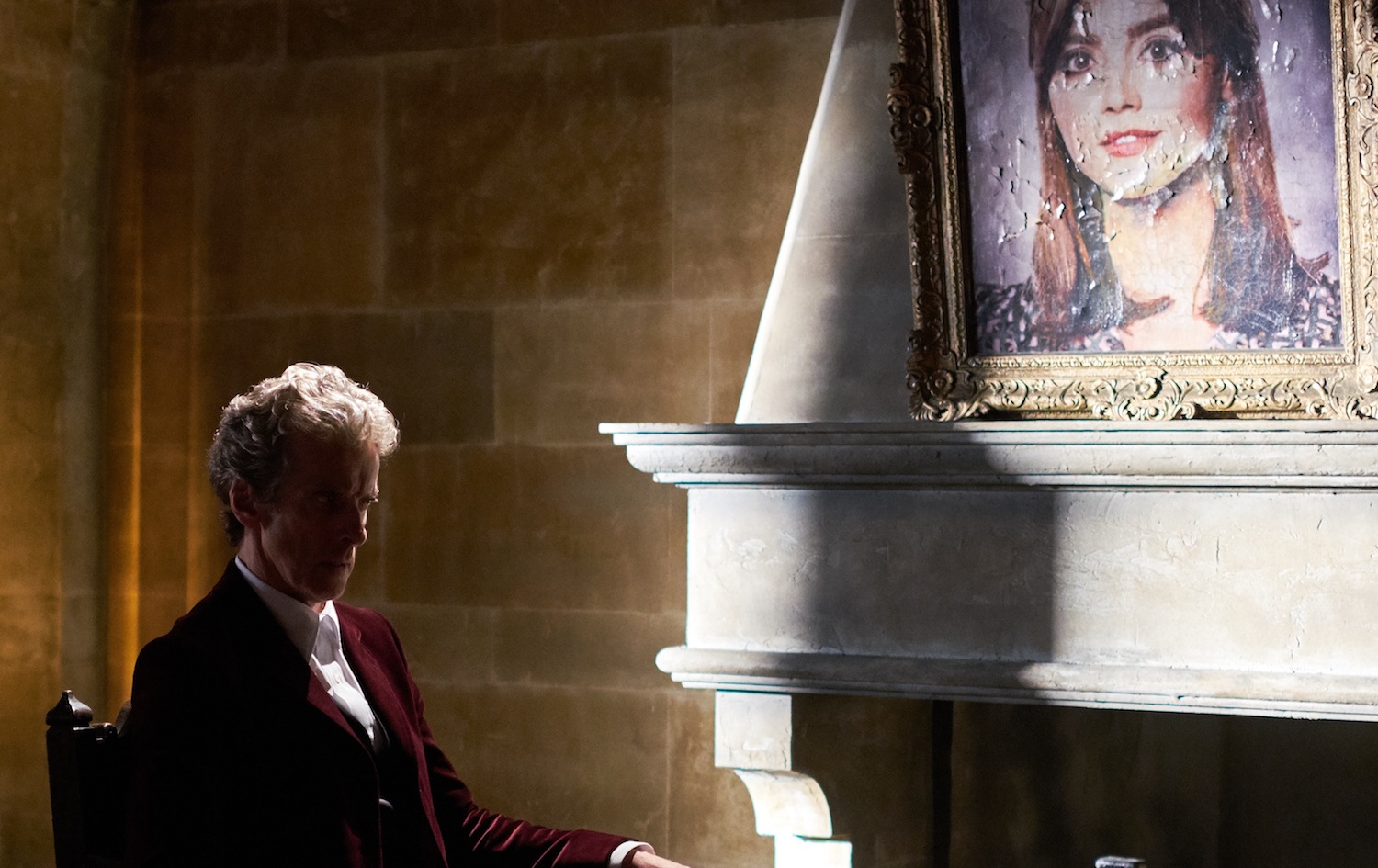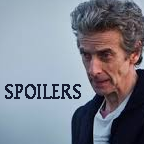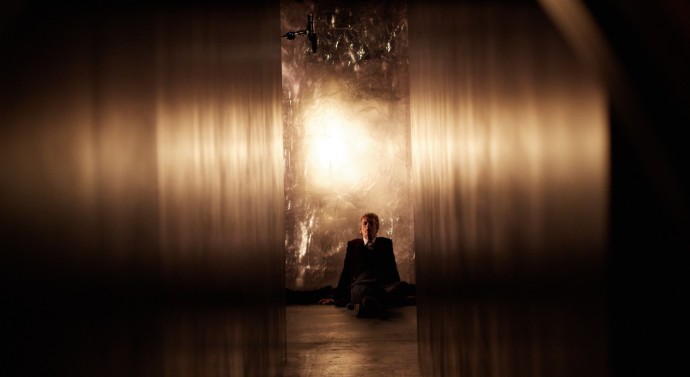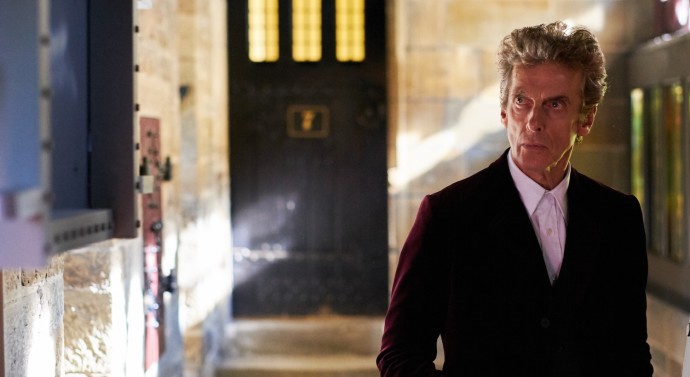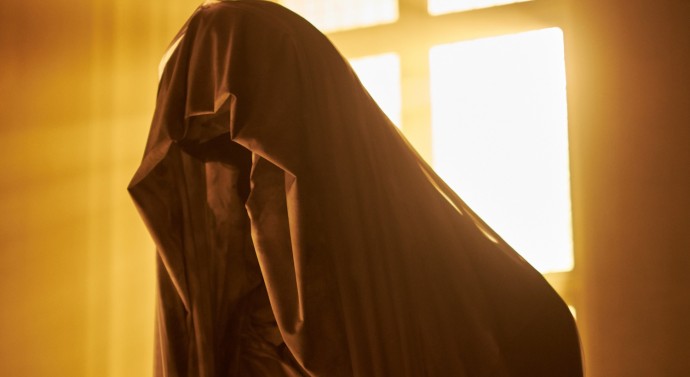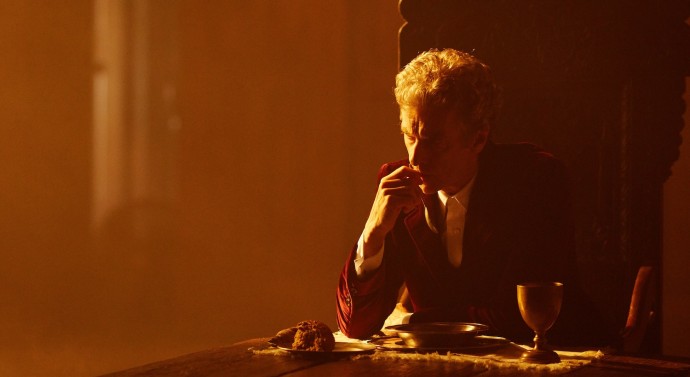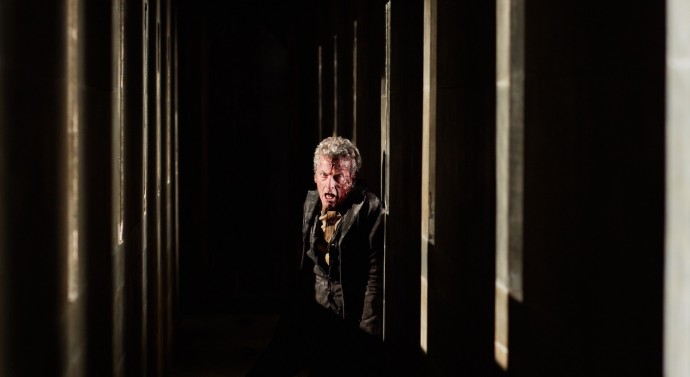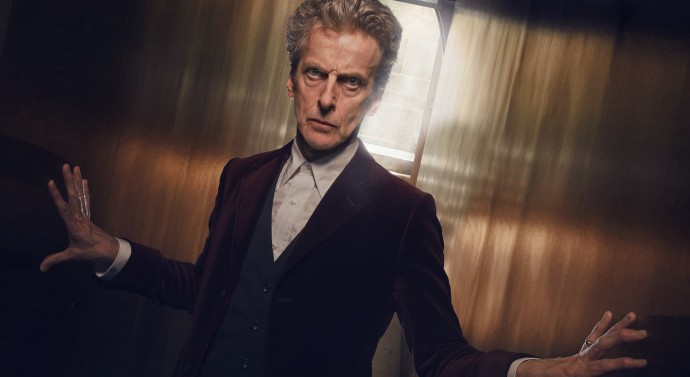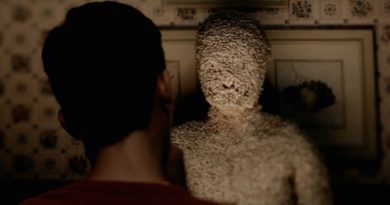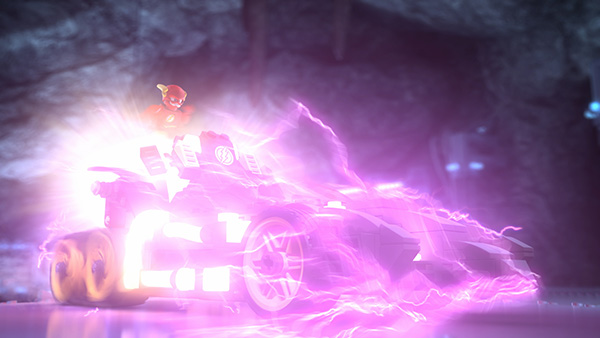DOCTOR WHO: Hell Is HEAVEN For Bad People

![]()
Season 9, Episode 11 “Heaven Sent”
The Doctor finds himself alone — hunted and haunted — in a trap built just for him. But what is the Veil and who are his captors?
It’s SPOILERS for “Heaven Sent” all the way down, folks, but seriously, you should have watched this episode by now. You really should. In fact, I’ll wait if you haven’t.
Go on… I’ll be right here when you get back.
The Doctor is all alone in one of the most experimental — and risky — episodes the show has ever done… but does it work?
Good Lord, this was a hard review to write.
When you have an episode that is, more than any other in the show’s history, a one-man performance, what you don’t want to do is spend the entire review just talking about how amazing an actor Peter Capaldi is, even if it’s true. So as this review evolved — because it really sort of started out being “Peter Capaldi is amazing!” all the way through — I found myself watching the episode again, and again, and again…
Congratulations, Steven, Peter, Rachel and Murray… I have now watched “Heaven Sent” more times than any other episode of Doctor Who. And it just keeps getting better on every viewing.
Before I dive into this, let’s just get this out of the way. There are some fans out there bemoaning the use of the TARDIS as the Doctor’s Mind Palace and calling it Moffat ripping himself off from several episodes of Sherlock. There are a couple of reasons why this complaint is misplaced, not least of which is that the idea of a Mind Palace is hardly original to Sherlock; in fact it dates back to at least the writer/philosopher/lots-of-other-things Cicero in the 1st century BC, if not earlier. It’s also handled quite differently in the two shows overall, with the TARDIS serving less as a Mind Palace and more a visual representation of the Doctor’s thoughts. That’s always a tricky thing to show in any visual medium, and to me it’s quite appropriate that the inside of the Doctor’s mind looks like the TARDIS console room… what else would it look like?
As to the larger question/complaint that I’ve seen of Doctor Who becoming more like Sherlock in the Capaldi years, I think people have it backwards, if anything, because Capaldi’s Doctor is far more Original Series than New Series or Sherlock, and Benedict Cumberbatch’s Sherlock is one of the more alien of the portrayals of the Great Detective we’ve had. Is Moffat stealing from himself? Maybe, but better to steal from yourself than other writers, even if that is a grand tradition. Is it OK to not like it? Sure, although I think the compliant is misplaced. The feel of the Capaldi series is different than much of the New Series, even if the deconstruction of the Doctor we’ve seen these last two years was actually begun back in the Davies’ years.
And this season — good Lord, this season — we’ve actually seen more of a return to the longer form stories of the Original Series than in any time since the show returned, and I, for one, have loved it. Giving stories a chance to breathe is almost always a good thing, and with a focus on character interactions this season, it’s been a format change that has served the show better more often than not.
We’ve also seen Peter Capaldi give some of the finest performances of any of the actors playing the part of the Doctor in the history of the show. That’s a pretty bold statement, I know, but I’m standing by it, and I have evidence right here in “Heaven Sent”, if nothing else. Because this episode is one of — if not possibly the — finest stories in the show’s history.
Consider the premise: The Doctor is trapped in a place he cannot escape, wracked with anger and guilt, with only himself for company, and hunted by a creature he cannot outrun, fight or reason with. If that’s not the Doctor’s own version of Hell, I don’t know what else could be.
And it is a bold move by the creative team, because no matter the Incarnation, the Doctor has always had someone to play off of, even in the Companion-less episodes. Those Companions and assorted guest-stars are always a kind of audience surrogate, who the Doctor can explain things to/show off to/save, but here? The only person here is the Doctor himself. Sure, he’s “talking” to Clara, but he’s not, is he? He’s talking to himself and the heart-breaking self-awareness of that takes us somewhere we’ve never actually been: Inside the mind of the Doctor.
Showing how those seemingly random actions the Doctor often takes are really highly calculated plans? We’ve seen glimpses of that before, with this Incarnation and others at least implying that the long-game is at the core of the Doctor’s behavior — think the 7th Doctor in both his TV and especially his novel appearances — but never in this detail. And yet it makes perfect sense, as the Doctor is someone who works from the premise that he will always find a way out, or a way to win or survive… this is the mechanism behind the motion. He asks if he’s spoiling the magic, but no, like any great magician he shows us just enough to make the next trick be bigger and better because we have just enough of an idea how he does it… maybe.
Showing how he deals with grief? We’ve seen some of that before, too, in the 11th atop his cloud or the 10th’s casual cruelty towards Martha, but we’ve never been inside the man as he wrestles with it. And he loses here, because he can’t save Clara, because she dies and there’s nothing he can do about it, and she made the choices that led to her death. He knows that, and he acknowledges that she kinda got herself killed, but he also clearer than ever before admits that she did that by trying to be like him. It gives the Doctor another reason to hate himself, and it wounds him in a way that few things have, so much so, that when he realizes what is actually happening to him, it makes him seriously ask himself if he can’t just give up and lose for a change.
Of course he won’t, and he doesn’t, but it’s not because Clara is really there to tell him he needs to get up and fight, even if that’s the face and voice we see, and hear. No, the Clara in his head is his own voice, telling him that he never gives up, and he never can, because that is who he is.
That scene is especially interesting because it can be read two ways, and both are completely valid. Is it the Doctor remembering that he has died over and over again, and that the only way forward is millions of more lives of agony and death? That he can see the way out, but to get there he has to essentially kill himself over and over? Or is it that he hits the point where the grief of losing Clara, of having his best friend ripped from him — this immensely lonely man — and the sheer scale of the trap he is in overwhelms him?
Brilliant work here, folks. Brilliant. Moffat-haters there may be, but episodes like this show what it’s like when Moffat gets it right. Behind the scenes clips have shown that he, director Rachel Talalay, and Capaldi really made this episode together, with ideas bouncing back and forth between the three in a really wonderful way. There’s been a lot of word about how much input Capaldi has had on these last two seasons, coming from the background of being a fan and a director himself, but here it all comes together with the sublime direction of Talalay to give the audience something really special.
If Rachel Talalay’s name isn’t familiar, by the way, then she’s the director of last year’s “Dark Water/Death in Heaven” finale, as well as a host of other TV and film work. Her directorial debut was Freddy’s Dead: The Final Nightmare, and she’s directed episodes of Ally McBeal, The Dead Zone, Supernatural and about 20 other TV shows. I’ve seen a lot of fans calling for her to just be the director for the episodes going forward, and I can agree to a point. Her cinematic visual sense and deft hand are extremely welcome for episodes like this, and her instinct to let scenes breathe are crucial for this kind of story, but I’d be afraid we’d burn her out, so I’ll take the times she comes to play in the world of the Doctor gladly.
Writing, direction, acting all exceptional, but without Murray Gold’s score, would it all have worked quite this well? I don’t think I’ve talked much over the years since the show came back about Gold’s music, but that has been an oversight that I will start correcting here. Gold has been the musical director of Doctor Who since the show came back in 2005, and his contribution to the emotional core of the New Series cannot be underestimated. The musical themes that Gold has developed for each Doctor and Companion are unique pieces of art that have helped define the show for the last decade, and here, well, here he brings us a score that is both minimal and expansive, playful and disturbing, as well as epic and intensely personal. It really is phenomenal work.
But again, we have to come back to Peter Capaldi. There are so many great moments here I could write about, and this one isn’t even my favorite of the episode, but still:
Dying and knowing the only way to break through the Wall in Room 12 is to repeat the process of arrival, fear and death, again and again, the Doctor drags his bloody, broken body from the bottom of the castle to the top. He thinks he has enough time to make it to the teleport room before he dies, and he thinks he’s figured out the way to beat the trap, but he knows that he’s too broken to even escape through regeneration, and that if he doesn’t try… well.
But Time Lords take a very long time to die, and if he’s wrong, he’ll die alone.
Amazing, stunning, brilliant work, sir.
Thank you.
A moment’s thought on the anger of the Doctor: With Eccleston’s 9th Doctor, we had anger as a raw thing, befitting someone who was coming off the horrors of the Time War. Tennant’s 10th raged behind a grim mask, that wide grin becoming a hard line in a face gone almost expressionless. Smith’s 11th Doctor’s anger was a coldness that he switched on and off, but Capaldi’s 12th? His anger is a rage, a giant, burning thing that explodes and takes his face to a place where every inch is barely contained. Attack Eyebrows are nothing compared to the fire in his eyes and the snarl on his lips. This is a Doctor that is scary in his anger. The reason the “Am I a Good Man?” arc worked is that there were moments that one could wonder, but here… here in those climactic moments, where he stands again on Gallifrey and tells the Time Lords he is coming? This is the War Doctor, with apologies to the amazing John Hurt.
And that begs the question, of course. This Hybrid that we’ve been told of all season — this thing that is not a fusion of Time Lord/Dalek — is “me”, or is it “Me”? Is the Doctor saying that he is the Hybrid, or that he created the Hybrid by making Ashildr an immortal? And another question: if the Doctor is the one who saved Gallifrey — and has, in fact, saved it over and over again — then why have the Time Lords treated him in this way, by setting up the circumstances that brought the Doctor and Clara to the Trap Street, and ultimately leading to the events that claimed the life of his friend? Are the Time Lords so afraid that they have forgotten who the Doctor is, and how that he can be both savior and destroyer?
Do they not realize who they are making an enemy of?
“Hell Bent”, indeed.
![]()

